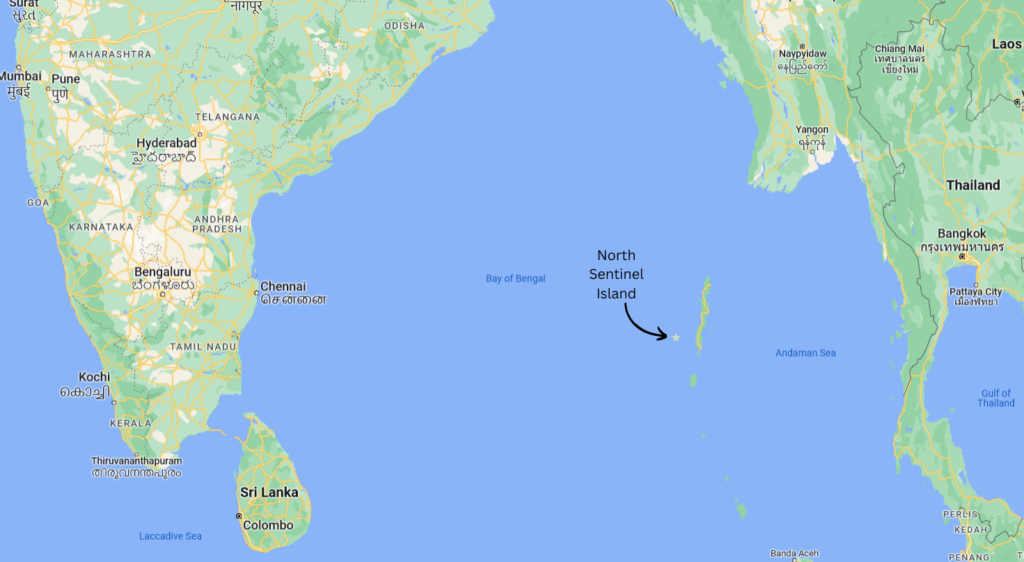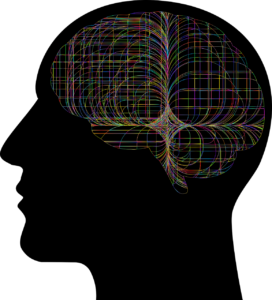About 815 miles east of Chennai, India, in the vast expanse of the Bay of Bengal, there is a small island inhabited by the most secluded uncontacted tribe on earth. The people of North Sentinel Island vigorously defend their wish to be left alone: when outsiders have ventured onto their island in the past, they have responded either by hiding or by attacking the imposters. In order to protect the Sentinelese people from outside interference and from diseases to which they have no immunity, the Indian government made it illegal for anyone to go within three nautical miles of the island.

Despite being completely isolated from the rest of the world, the Sentinelese tribe is similar to other communities in many ways. They have built homes for themselves to live in, and fishing boats that enable them to catch their food. They know how to make tools and weapons, not only for hunting but to defend themselves from would-be intruders. They have developed their own language, and their children appear to follow similar developmental trajectories to what we see in other parts of the world. Absent from North Sentinel Island are the markings of what we know as “civilization”, such as technology and literacy.
Primary Vs Secondary Knowledge
North Sentinel Island is a fascinating illustration of the difference between biologically primary and secondary knowledge. Primary knowledge consists of the things we know and the abilities we have simply because we’re human beings in our particular stage of evolution. It explains why communities all over the world, from the most isolated places like North Sentinel Island to the most connected places like the United States, know how to build shelters, find food, and verbally communicate.
By contrast, biologically secondary knowledge applies to things that are important by virtue of whatever culture or society we live in. We cannot pick up this knowledge simply by being immersed in the society, we have to learn it through cultural organization such as a school. For example, while most children acquire speech by observing and listening to the people around them, they cannot learn to read and write without someone taking the time to teach them. The people of North Sentinel Island communicate verbally with one another because, like all people, they have evolved to do so. But no one on the island can read because they’ve never learned, and literacy is meaningless within the context of their culture.
Organization: The Most Important Primary Skill?
It would be easy to list off biologically primary knowledge that people in all cultures and societies acquire: speech, figuring out that walking is a more efficient way of getting around than crawling, survival skills like finding food and shelter.
But one of the key primary skills we have – and one that leads into our ability to acquire secondary knowledge – is the way in which we organize information. When it comes down to it, the knowledge we have is really just a vast collection of items that are stored in our long-term memory. Every time we formulate the words to utter a sentence, or brush our teeth, or go through the complex series of steps involved in driving from the house to the grocery store, we are relying on what is in our long-term memory.
There is an immense amount of data in there, but data on its own is meaningless. If it is not organized in some way, it is a jumbled mess. Imagine a dictionary in which the 600,000 or so words in the English language are listed randomly and not in alphabetical order. It would be so difficult to look anything up that the dictionary would be virtually useless.
Fortunately, humans have the ability to filter and organize information that is taken in. Without really thinking about it, we know how to reference new data with what is already stored in our long-term memory, so that we can make sense of it and effectively grow our knowledge.

The Value Of Imitation
One of the first pieces of biologically primary knowledge that we acquire is that imitation comes with reward. Many of the games we play with our babies and toddlers centre around encouraging them to mimic our actions. Young children derive immense amounts of joy from copying everything a parent or older sibling says to them.
Observing and replicating people’s actions has cognitive importance that goes beyond mere entertainment. One of the more recent neuroscientific discoveries is the existence of a mirror neuron system that activates not only when we observe someone else performing an action, but when we perform the same action ourselves.
What we can infer from this is that humans have evolved in a way that enables us to handle imitation, and that this is an important method of acquiring knowledge. Although our ability to learn through imitation is, in and of itself, a form of biologically primary knowledge, it enables us to learn biologically secondary skills.
What Are The Implications Of This?
As recently as 40 years ago, so-called “IQ tests” were regarded as a standard method of measuring intelligence. We have learned a lot since those days, of course, including the fact that intelligence is not as one-dimensional as we used to think. It is a complex phenomenon, the measurement of which is often highly subjective.

Despite this, the IQ test is still used fairly widely in certain circles. It forms part of many psychological screening tests and assessments for cognitive and developmental disabilities. One of the problems with this is that many questions on the test centre around biologically secondary knowledge. Examples include unscrambling words and identifying mathematically complex patterns. It should also be acknowledged that an individual requires certain biologically secondary skills in order to take the test in the first place. These factors could create artificially low scores for some people, including those new to a culture, such as recently arrived immigrants and refugees, and those who have not received educational opportunities.
Since we have identified some biologically primary skills that aid in the acquisition of biologically secondary knowledge, it might be more valuable to focus on those when diagnosing and providing interventions for people who are struggling. After all, it is unlikely that the people of North Sentinel Island would get high scores on a standard IQ test, but there is no doubt that they have the intelligence not only to survive, but to have meaningful, fulfilled lives as part of their community.
Original post by Kirsten Doyle.
